The Future of Cloud Healthcare: Top Technology Trends for 2030
The healthcare industry is standing on the brink of a cloud revolution. By 2030, the cloud environment with emerging technologies like blockchain, zero trust architecture, and IoT things will evolve into the core ecosystem powering patient care, payer-provider collaboration, and healthcare management. Apert from data storage and these tools can also tackle the real-world issues like data security and cyber threats. According to IBM’s 2024 Cost of a Data Breach Report, Healthcare Industry has recorded the highest average data breach costs across all industries for 14 consecutive years. In 2024 alone, the average cost for the breach is approximately $9.8 million per incident, underscoring the urgent need for stronger cloud security and Zero Trust models. In this blog let's see how these three pillars transform the healthcare systems into a smart, responsive, and fortified digital environment to deliver proactive and personalized patient care.
Blockchain for Unbreakable Healthcare Data Security
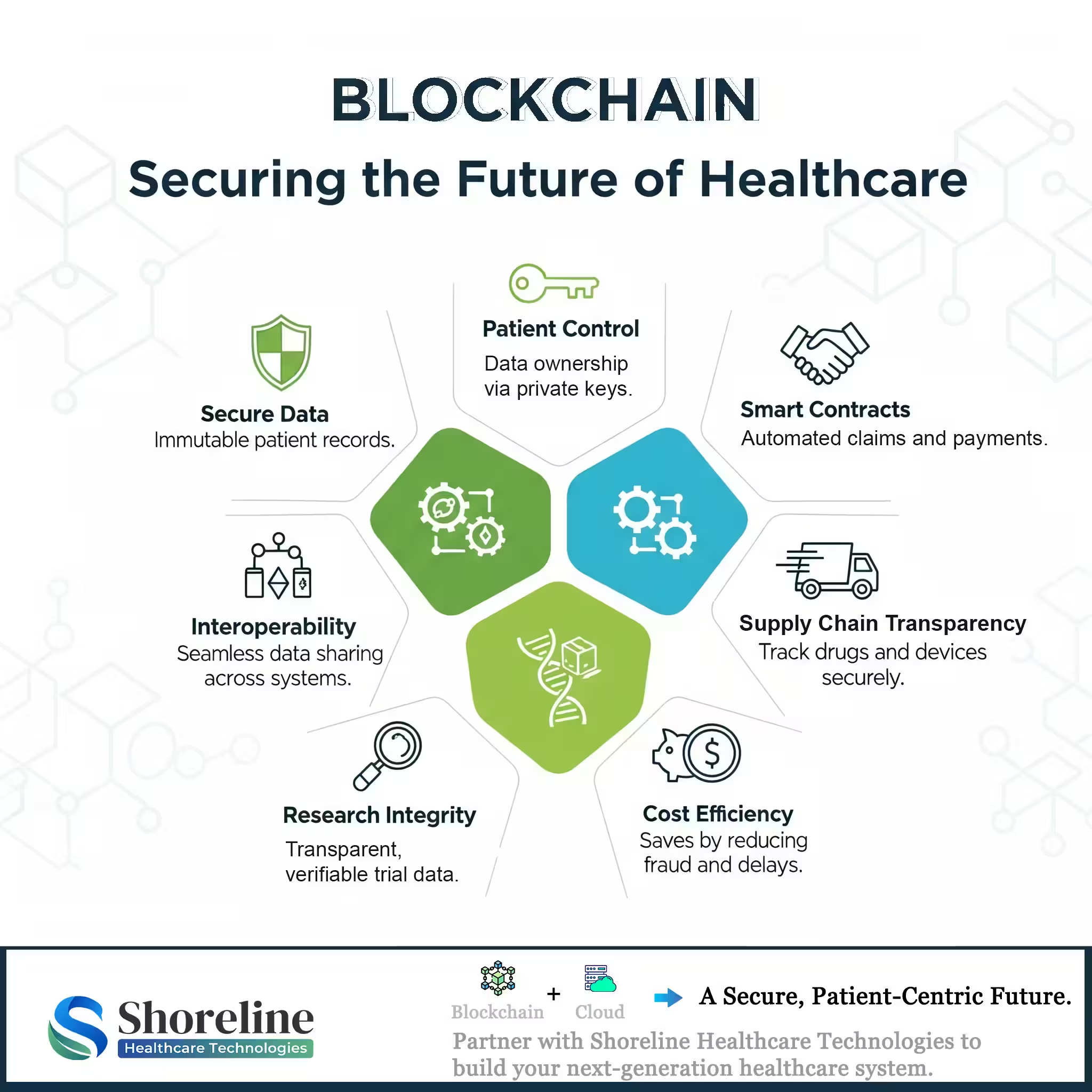
What do you mean by Blockchain in Healthcare?
Blockchain is a decentralized ledger that stores healthcare data securely across many computers over the internet. In this every entry is encrypted, time-stamped and verified, making it difficult to change, hack, or cheat. It integrates with cloud systems to manage the health information securely.
How does blockchain technology benefits healthcare industry?
Blockchain technology provides a secure and immutable framework for managing the sensitive patient information. With automated claims submission and authorizations, they help in building a trust-driven, and patient-centered healthcare systems.
Enhances Data Security and Integrity
Using blockchain each and every record is tamper-proofed with all transactions being encrypted, timestamped, before they are permanently stored. This reduces the risk of data breaches. With Immutable logs it is easier to detect any unauthorized changes to electronic health records (EHRs).
Patient Empowerment and Data Ownership
With the traditional on-site systems patients have very little control over their health records. Blockchain technology changes this by granting access to their health records through private keys. This helps to build a trust-driven healthcare systems, where patients have more visibility on how their sensitive health data is used.
Streamlines Administrative Processes
Various administrative tasks like submitting claims, getting prior authorizations and payment settlements can be automated using cloud-based blockchain technology. This results in reduced workloads and manual errors thereby improving the overall efficiency of the revenue cycle management.
Improves Interoperability Across Systems
Blockchain allows to have a secure and standardized data exchange across hospitals, payers, pharmacies, and research institutions. It enables open access frameworks where data moves seamlessly while maintaining security.
Enhances Data Security and Integrity
Using blockchain each and every record is tamper-proofed with all transactions being encrypted, timestamped, before they are permanently stored. This reduces the risk of data breaches. With Immutable logs it is easier to detect any unauthorized changes to electronic health records (EHRs).
Fraud Prevention in Supply Chains
They help to track the movement of pharmaceuticals, devices, and vaccines from production till delivery by creating an unchangeable record at every step. This virtually prevents the entry of counterfeit drugs in the market.
Cost Reduction Through Efficiency
Implementing cloud-based blockchain technology are cost effective because of their higher efficiency and security features.
We at Shoreline Healthcare Technologies, are actively exploring the blockchain healthcare cloud solutions to fortify data integrity and empower patients.
Zero Trust Architecture: The New Gold Standard for Healthcare IT
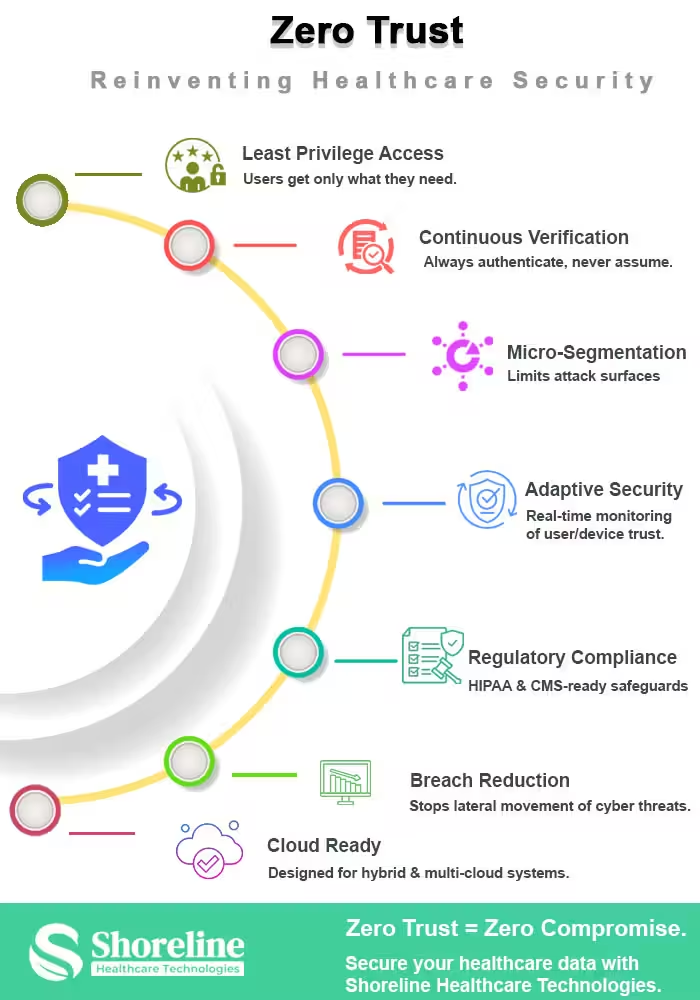
What do you mean by Zero Trust Architecture?
Zero Trust Architecture means “never trust, always verify.” ZTA believes that threats can come from anywhere inside or outside the network. So, that every user, device, and app must be identified and verified every single time before accessing the health data.
What is the use of Zero Trust Architecture?
ZTA prevents the sensitive health information from breaches, malware and other cyber-threats. It gives granular access, so that only authorized users can access the specific patient data.
Micro-segmentation: In ZTA the entire cloud network is broken into small, isolated zones. So that if one area is breached, the threat is contained and doesn’t spread across the entire healthcare system.
Access Management: ZTA authenticates and authorize each access request. They provide multi-factor authentication (MFA), device health checks, and user behaviour analytics and prevent unauthorised logins.
Provides secure Remote Access: Telehealth calls and remote patient monitoring are made more secure and accessible with ZTA. Physicians can access electronic health records and other critical systems safely from any location.
IoT Integration for Real-Time, Personalized Care
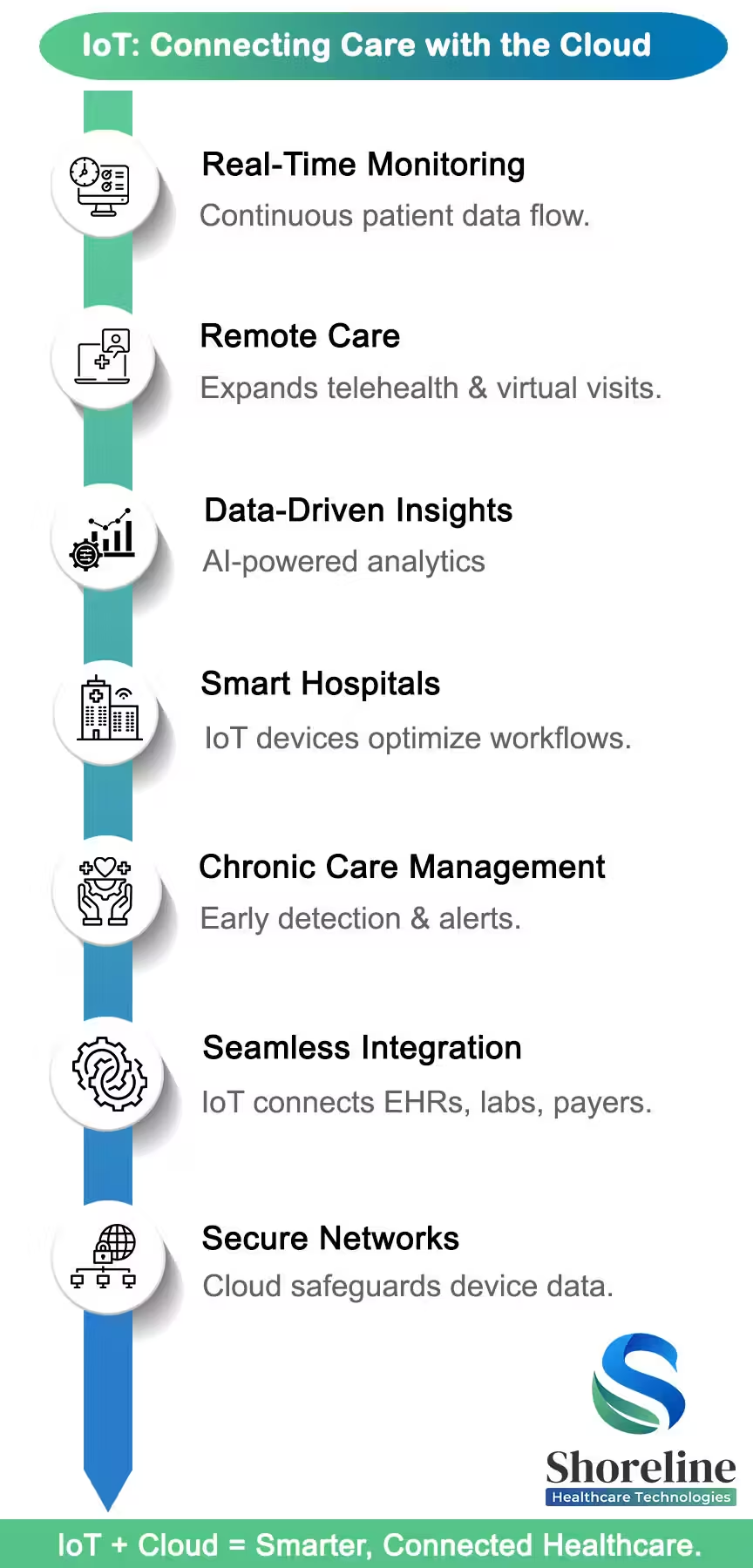
What is IoT in Healthcare?
The Internet of Things (IoT) refers to the vast network of physical devices like smartwatches, fitness trackers, in-hospital sensors and pacemakers that gather and transmit real-time health information over the internet. These devices combined with cloud technology acts as a life-saving tool.
Benefits of Cloud enabled IoT devices
Smart Hospitals: IoT sensors can automate dispensing of medicines, track the critical equipment like ventilators, and keep an eye on room sterilization. This helps to enhances patient care and safety.
Personalized Wellness: These wearable devices monitor individuals and gives them information about their sleep patterns, activity levels and stress. And help to control their health conditions and take informed decisions.
Remote Patient Monitoring (RPM): By continuously monitoring the vitals like heart rate, blood pressure, and oxygen levels the help to detect patterns and alert the care team under emergency.
Building a Smarter, Safer Healthcare Future Together
We at Shoreline Healthcare Technologies are forerunners in offering consultations on these innovations. We stay ahead in adopting all latest technologies and promises a more secure, connected, and patient-centric system. With robust data management, seamless interoperability, and smarter revenue cycle operations we have helped healthcare providers to protect sensitive patient data and have encouraged them to embrace cloud-based innovations to provide real-time care with confidence creating the next era of healthcare innovation.
FAQs
Q1. Are IoT devices HIPAA compliant?
+Yes, these devices support HIPAA compliance and protects the sensitive healthcare data from unauthorized access.
Q2. How will IoT impact patient care? does it mean?
+IoT devices helps in providing a real-time monitoring of patient vitals and gives predictive insights so they can have better chronic care management.
Q3. How will IoT integration with cloud benefits patients?
+IoT devices ensures patients well-being and safety and gives real-time alerts to caregivers and doctors via the cloud.
Q4. Is ShorelineMB the same as Shoreline Healthcare Technologies?
+Yes, ShorelineMB.com is the official website of Shoreline Healthcare Technologies, a leading provider of medical billing and RCM services.
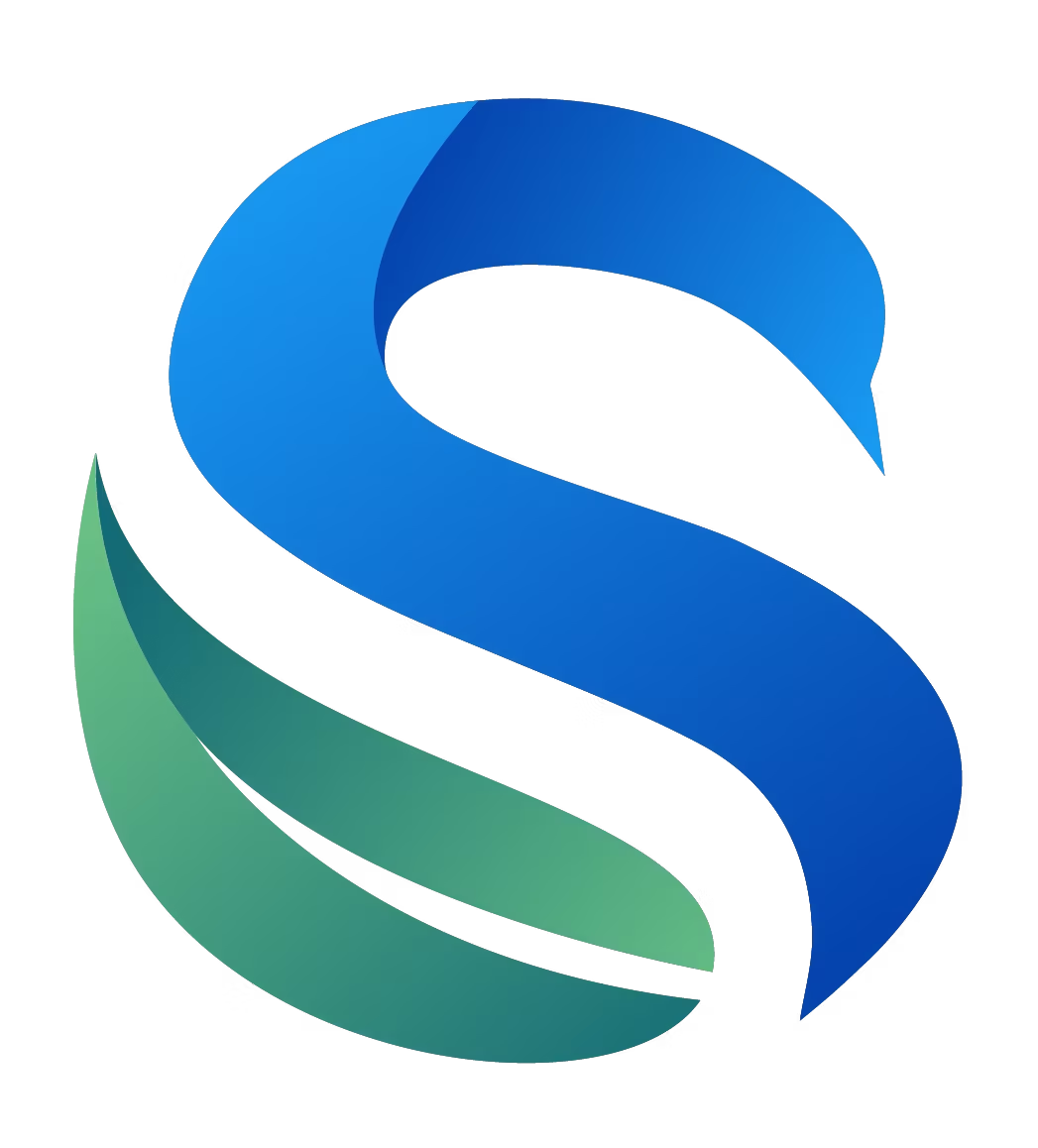









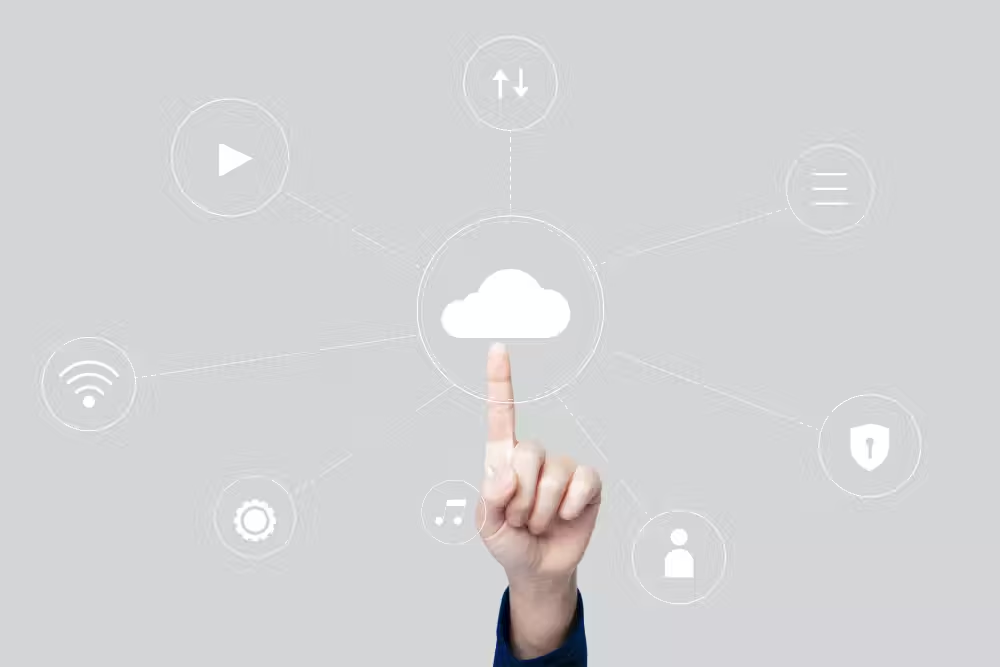


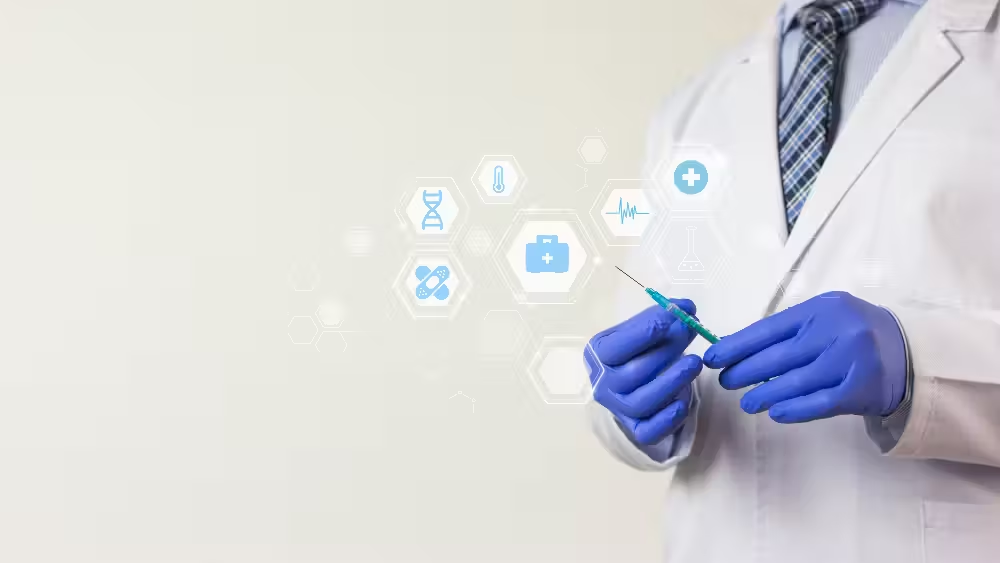

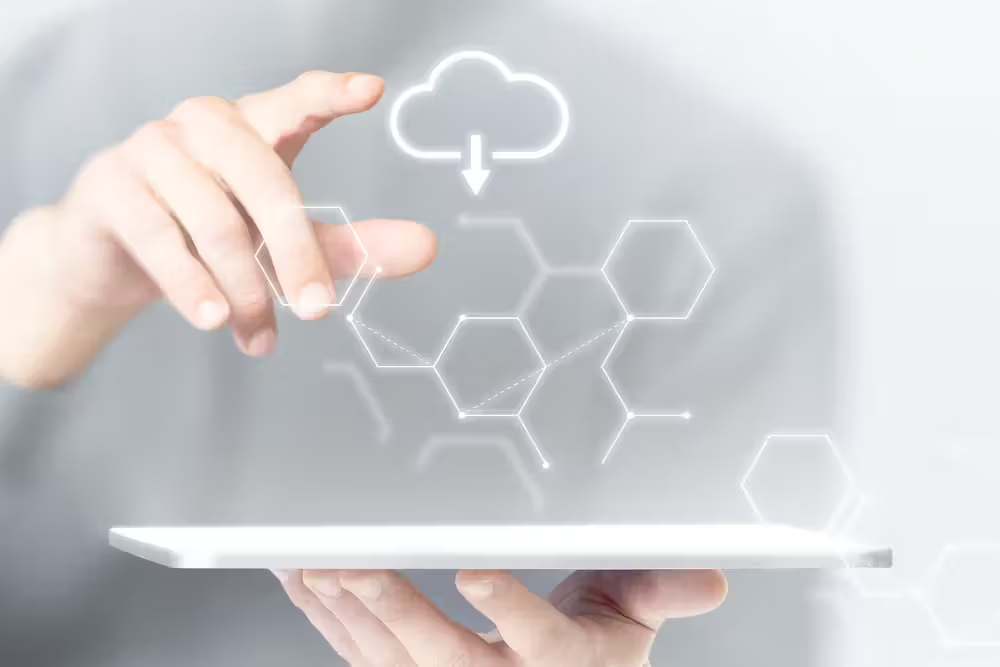

Start your journey towards secure, cloud-based healthcare ecosystem with Shoreline Healthcare Technologies.